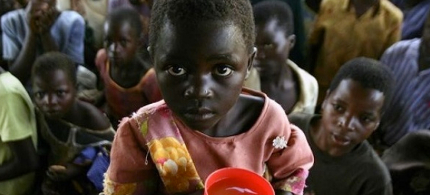Oxfam: Most of World Bank’s Private Investments Linked to Tax Havens
SPECIAL FEATURE, WHISTLEBLOWING - SURVEILLANCE, CAPITALISM, 25 Apr 2016
teleSUR – TRANSCEND Media Service
Oxfam says poor countries are cheated out of an estimated US$100 billion in taxes a year by companies using offshore havens and other tax-dodging tricks.
11 Apr 2016 – As the Panama Papers continue to shed light on the widespread issue of tax evasion around the globe, Oxfam has revealed that the World Bank is also complicit in promoting tax havens with the majority of its private investments going to companies with offshore accounts, according to a new report released Monday.
“Tax dodging by multinational corporations alone costs developing countries at least US$100 billion every year, and corporate investment in tax havens almost quadrupled between 2000 and 2014,” Oxfam said in a recent report. “Furthermore, it is estimated that globally a total of US$7.6 trillion of individuals’ wealth sits offshore. If tax were paid on the income that this wealth generates, an extra US$190 billion would be available to governments every year.”
Out of the 68 companies in Sub-Saharan Africa that the World Bank’s private lending arm the International Finance Corporation lent money to in 2015, 51 use tax havens, accounting for 84 percent of IFC annual investment in the region.
“It doesn’t make sense for the World Bank Group to spend money encouraging companies to invest in ‘development’ while turning a blind eye to the fact that these companies could be cheating poor countries out of tax revenues that are needed to fight poverty and inequality,” said Oxfam tax policy advisor Susana Ruiz in a statement on Monday.
In just five years, IFC, which according to its website is “the largest development institution focused exclusively on the private sector in developing countries,” has more than doubled its investment in companies that use tax havens. In 2015, the amount was US$2.87 billion, up from US$1.20 billion in 2010, according to Oxfam.
Oxfam has previously reported that corporations cheat Africa out of some US$11 billion in taxes every year, highlighting the need for stricter tax rules to help fight poverty in inequality in the poorest yet economically fast-growing region.
“The World Bank Group should not risk funding companies that are dodging taxes in Sub-Saharan Africa and across the globe, Ruiz added. “It must put safeguards in place to ensure that its clients can prove they are paying their fair share of tax.”
Billions of dollars in tax dollars siphoned off from African countries each year could provide crucial and much-needed investments in key areas of infrastructure and public services, including health.
The Oxfam report, titled “The IFC and Tax Havens” and focused on the need for more responsible corporate tax activity, comes as the Panama Papers have shed high-profile international attention on the widespread use of offshore accounts and shell companies to launder dirty money and evade taxes.
Called the biggest leak in the history of data journalism, the Panama Papers have implicated world leaders, business people, and celebrities in questionable financial practices. And the 11.5 million documents from the Panamanian law firm Mossack Fonseca is just the tip of the iceberg of the world of tax dodging and offshore havens, according to experts.
The report also comes ahead of the IMF World Bank spring meeting in Washington, D.C., this week. Oxfam argues the global financial institutions must prioritize working with governments to stop tax evasion.
Go to Original – telesurtv.net
DISCLAIMER: The statements, views and opinions expressed in pieces republished here are solely those of the authors and do not necessarily represent those of TMS. In accordance with title 17 U.S.C. section 107, this material is distributed without profit to those who have expressed a prior interest in receiving the included information for research and educational purposes. TMS has no affiliation whatsoever with the originator of this article nor is TMS endorsed or sponsored by the originator. “GO TO ORIGINAL” links are provided as a convenience to our readers and allow for verification of authenticity. However, as originating pages are often updated by their originating host sites, the versions posted may not match the versions our readers view when clicking the “GO TO ORIGINAL” links. This site contains copyrighted material the use of which has not always been specifically authorized by the copyright owner. We are making such material available in our efforts to advance understanding of environmental, political, human rights, economic, democracy, scientific, and social justice issues, etc. We believe this constitutes a ‘fair use’ of any such copyrighted material as provided for in section 107 of the US Copyright Law. In accordance with Title 17 U.S.C. Section 107, the material on this site is distributed without profit to those who have expressed a prior interest in receiving the included information for research and educational purposes. For more information go to: http://www.law.cornell.edu/uscode/17/107.shtml. If you wish to use copyrighted material from this site for purposes of your own that go beyond ‘fair use’, you must obtain permission from the copyright owner.
Read more
Click here to go to the current weekly digest or pick another article:
SPECIAL FEATURE:
- Genocide in Pictures: Worth a Trillion Words
- Genocide in Pictures: Worth a Trillion Words
- Genocide in Pictures: Worth a Trillion Words
WHISTLEBLOWING - SURVEILLANCE:
- BREAKING: Whistleblower Israeli Soldier Says IDF Burned over 1,000 Food Trucks Meant for Gaza
- I’ve Worked at Google for Decades and I’m Sickened by What It’s Doing
- Julian Assange and the Criminalization of Journalism: A Story of Moral Injury and Moral Courage
CAPITALISM:
